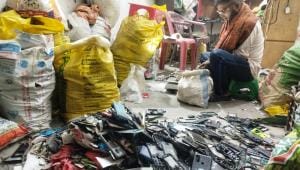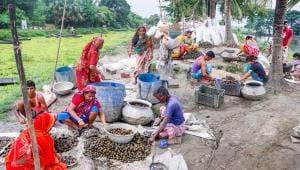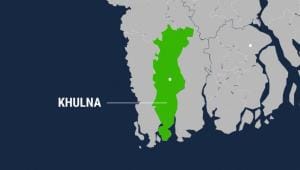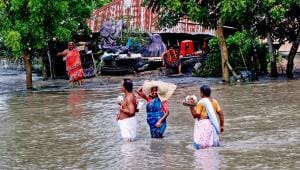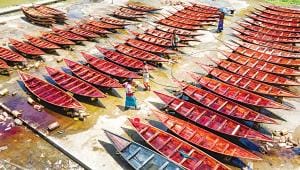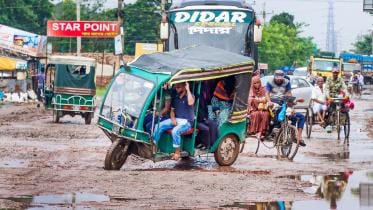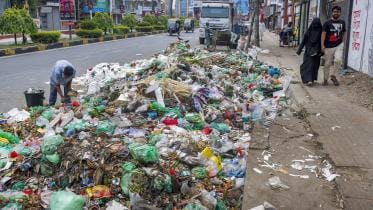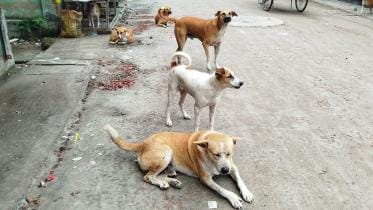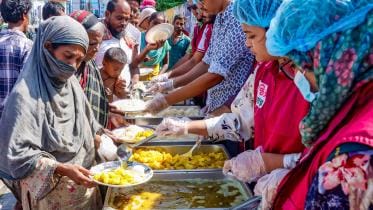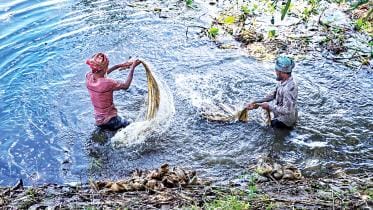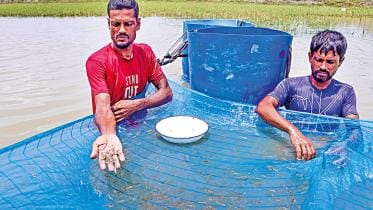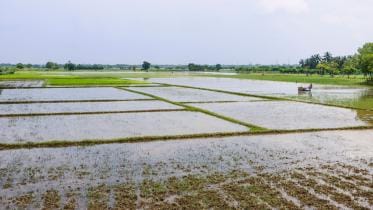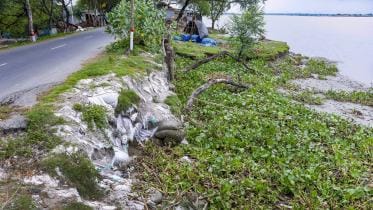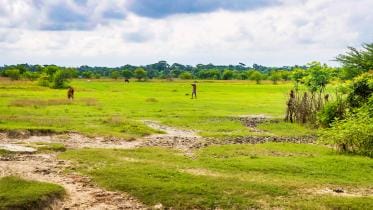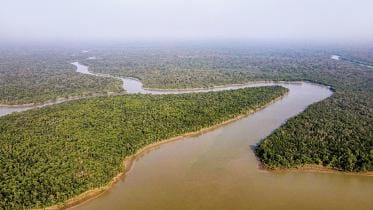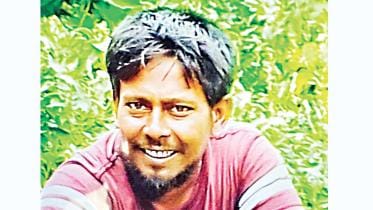Shipyard Road left in ruins for over a decade
For more than a decade, Shipyard Road stretching from Khulna’s Rupsha Traffic Intersection to Khan Jahan Ali (Rupsha) Bridge has been a nightmare for commuters, businesses and students. What was once a bustling artery of trade and transport has turned into a pothole-ridden stretch.
2 October 2025, 18:00 PM
Nightmare on Khulna-Satkhira highway
The Khulna-Satkhira highway, one of the most important trade routes in the country’s southwest, now resembles a patchwork of broken bricks and gaping craters rather than a road.
16 September 2025, 18:00 PM
KDA avenue turns into a garbage dumping ground
KDA avenue, one of Khulna city’s busiest and most developed roads, has long been blighted by an ongoing problem -- it has served as an open garbage dumping site for the past 15 years.
30 August 2025, 23:43 PM
Stray dog debate heats up in Khulna after abrupt catching attempt
Animal rights groups demand sterilisation, vaccination; some locals cite attacks
29 August 2025, 13:30 PM
Sweet harvest on saline shores
On the saline fringes of Bangladesh’s southwest coast, where seawater intrusion and freshwater scarcity have long dictated the fate of crops, a quiet agricultural revolution is ripening.
26 August 2025, 18:00 PM
Khulna’s ‘Poor Man’s Buffet’ feeds hundreds
On a Sunday afternoon at Shibbari intersection in Khulna, rows of bowls filled with rice, lentils, vegetables, and eggs were arranged on a table.
25 August 2025, 18:00 PM
The fading fibre
The Khulna district, once renowned for its thriving jute cultivation, was home to government-owned jute mills that formed the backbone of its economy.
15 August 2025, 20:53 PM
Surge in shrimp export yet to breathe life into sector
Despite recent data indicating a rise in the value of shrimp exports, industry insiders say the sector has yet to experience a meaningful revival, as shipment volumes have not shown significant growth.
7 August 2025, 18:00 PM
Inadequate, faulty sluice gates leave farmlands inundated
A lack of adequate sluice gates and poor maintenance of existing ones are causing widespread waterlogging in Khulna’s Batiaghata upazila, significantly affecting Aman paddy cultivation -- the region’s only major crop.
6 August 2025, 18:00 PM
Technical staff crisis hampers KCC services
The Khulna City Corporation (KCC) is struggling to function due to a chronic shortage of engineers and technical staff.
4 August 2025, 18:00 PM
Erosion threatens key road in Khulna
Erosion caused by the Kazi Bacha River has put the main road connecting Dacope and Batiaghata upazilas in Khulna at serious risk. At least five major points along the road have already been severely damaged,
1 August 2025, 20:14 PM
Shrinking farmland threatens livelihoods, food security
Once a proud landowner and hardworking farmer in Daldaha village of Bagethat’s Rampal upazila, Sunil Kumar Mondal now lives on the edge of survival, clinging to the memory of a life that once revolved around his fields and harvests.
30 July 2025, 18:00 PM
Where the forest feeds and fades
As the morning mist lifts over the vast expanse of the Sundarbans, the rhythmic splash of oars fills the air. Small wooden boats, mostly paddled by women, glide through narrow canals and creeks of the mangrove forest.
25 July 2025, 19:06 PM
Gopalganj violence aftermath: Villages deserted fearing arrest
The bodies of three people who were killed in last week’s violence centring a political rally in Gopalganj were exhumed yesterday for post-mortem examinations, five days after burial.
21 July 2025, 19:48 PM
‘He went out with his rickshaw and got shot’
Ramzan Munshi, 35, was not involved in politics. He spent his days pulling a rented rickshaw and lived alone in a small room in the yard of his family’s home in Gopalganj town.
18 July 2025, 19:37 PM
Gopalganj violence: 164 arrested in series of raids
The cases have been filed with Gopalganj Sadar, Kashiani, and Kotalipara police stations
18 July 2025, 18:01 PM
Mud, potholes cripple Jashore-Khulna highway
The Jashore-Khulna highway, a vital artery for the country’s southwestern trade routes, is now in a state of disrepair. Serving as the main corridor connecting Benapole along with Noapara river port, Mongla sea port, and Bhomra land port, the highway has become nearly impassable due to recent monsoon rains and unfinished work.
15 July 2025, 18:00 PM
Lives on hold: Workers await reopening of closed jute mills
Five years on: Jute mill revival uneven, workers face deepening poverty
11 July 2025, 18:00 PM
Shrimp adulteration threatens health, exports
The shrimp industry, known as Bangladesh’s “white gold”, significantly boosts foreign exchange earnings and supports thousands of marginalised farmers, especially in the Khulna region.
8 July 2025, 18:00 PM
Kuet shutdown drags on for 133rd day
The suspension of academic activities at Khulna University of Engineering and Technology (Kuet) entered its 133rd day today, following violent clashes involving students and teachers on February 18.
1 July 2025, 18:00 PM






